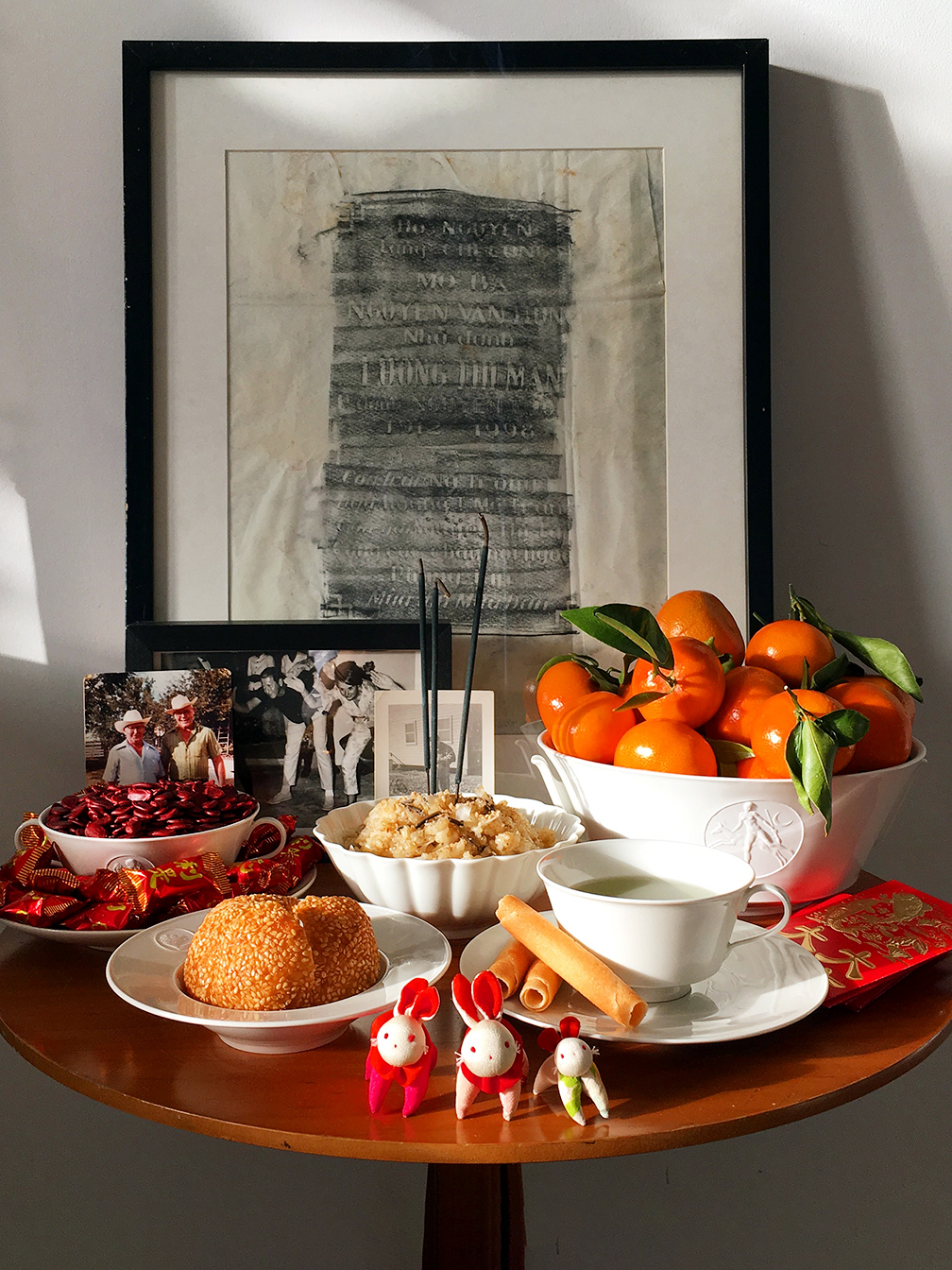Lunar New Year Represents a Clean Slate for Me—And My Space
Kate Berry shares her family traditions, then and now.
Updated Jan 11, 2024 9:48 AM
We may earn revenue from the products available on this page and participate in affiliate programs.
Before we all turn our attention to Valentine’s Day, many people around the world—including Kate Berry, Domino’s chief creative officer—will be celebrating Lunar New Year at the beginning of February. “Westerners operate on the solar calendar, which lasts 365 days, but many East Asian countries work off of a lunar calendar, which defines a year by full cycles of the moon,” she explains. This year the Lunar New Year falls on February 10, and it’s the Year of the Dragon. For Berry the holiday represents a clean slate—a time to tidy up your space, organize, and do all the things you’ve been putting off. “Some people even get haircuts so they can present their best physical selves,” she says. Here, Berry walks us through how she celebrates the Lunar New Year.
How did you celebrate the Lunar New Year growing up?
We did everything as a family. We cleaned as a family; we prayed as a family. It wasn’t just my parents cleaning the house—we were all doing our share. I think there’s an important teaching moment there. I was taught the value of doing things for yourself and what it means to play your part in a family system.
We were also taught the power of superstition. I remember one year my brother and I got into a fight. We were crying in our nice clothes, and our parents said, “Pull it together! You’ll be unhappy the rest of the year if you keep this up.”
I also recall how important it was to create a celebratory environment in our home for the special day. We always got peach blossoms and quince blossoms, which are thought to represent prosperity and growth. We’d also put out bowls of tangerines and other citrus that symbolize abundance and happiness.
We would set up an altar every year as well. (We’re Buddhist, but people of all religions celebrate Lunar New Year.) We’d set out pictures of our ancestors and special foods as an offering: watermelon seeds dyed red for luck, tea, sticky rice cakes with meat and beans wrapped in banana leaves, moon cakes, and other little desserts. They acted as a thank-you to our ancestors. We’d pray and then light incense and candles. When they burned down, that’s when we were allowed to eat, because it symbolized our ancestors finishing eating. It was torture as kids to wait!
Our parents and relatives always gave us little red envelopes with money inside, too. They blessed them with good luck and fortune and health to carry us through the year.
How do you celebrate now, as a parent?
Usually I get red envelopes ready for my daughter, Quinn, and the other kids, and I always set up my own altar. I have a charcoal rubbing of my grandmother’s grave in Vietnam from when my sister and I took a trip there, so I put that up to honor her, and I have pictures of my husband Ian’s grandparents, aunts, uncles, and other relatives. It’s an altar similar to the one I had growing up, but my own version. It’s like East meets West.
Quinn adds her own touches to the altar, too, like her Legos and stuffed animals. It’s something we can do together. I love that she likes to add things; I believe it’s helping her understand her Vietnamese heritage and the traditions.
I’m also hoping to clean and organize my entire apartment, starting with my closet. I wish I had time to organize everything, but generally speaking I will need to clean, purge, and edit things I don’t need to make room for luck to come.
We don’t have family in New York, so we’re used to celebrating with friends. I think, more than anything, it’s about reaching out to loved ones, especially those we haven’t talked to in a while. Even just sending a “Hey, thinking about you” text to everyone in our lives. To reflect on what these people mean to us is really important—it sends good energy and thoughts their way.


